Introduction

Envision standing under a vast night sky, the stars twinkling as if sharing secrets of the universe. Have you ever wondered how ancient civilizations understood this sprawling cosmos? Tonight, as you gaze upward, you are not merely a spectator but a participant in a centuries-old tradition of cosmic exploration.
What secrets do the silent stars hold that ancient sages once whispered in hushed reverence? Across the sands of time, the ancients looked up at the same night sky you do now, but with eyes filled with myths, gods, and constellations conceived in profound wisdom. Their understanding of the cosmos was deeply intertwined with their daily lives, influencing everything from agriculture to religious ceremonies, providing them not only with practical guidance but also with spiritual fulfillment.
This introductory section invites you to embark on a journey through time, exploring how ancient wisdom from various cultures—Egyptian, Mayan, Indian, Chinese, and Greco-Roman—shaped our contemporary understanding of the universe. Each civilization brought its unique perspective to bear on the heavens, crafting elaborate cosmologies that reflected their deepest spiritual and philosophical beliefs.
As we peel back the layers of time, you will discover how these ancient philosophies continue to influence modern thought. The legacy of these celestial observations and interpretations endures in today’s astronomical science, philosophical inquiries, and even in our spiritual understandings. Through their eyes, we learn not only about the universe but also about the universal questions that have intrigued humans across millennia: Why does the universe exist? What is our place within it?
Engage with me, as we uncover these timeless truths together. This exploration is not just an academic pursuit; it’s a personal journey that connects you with the ancients who first charted the mysteries of the night sky. As you turn each page, consider how this ancient wisdom can illuminate our modern lives, offering insights that are as relevant today as they were when first etched into clay tablets or painted on cave walls.
Step forward into this journey with curiosity and wonder, as we traverse the ancient and modern worlds, connecting the past with the present, and the stars with our souls.
Understanding Ancient Wisdom
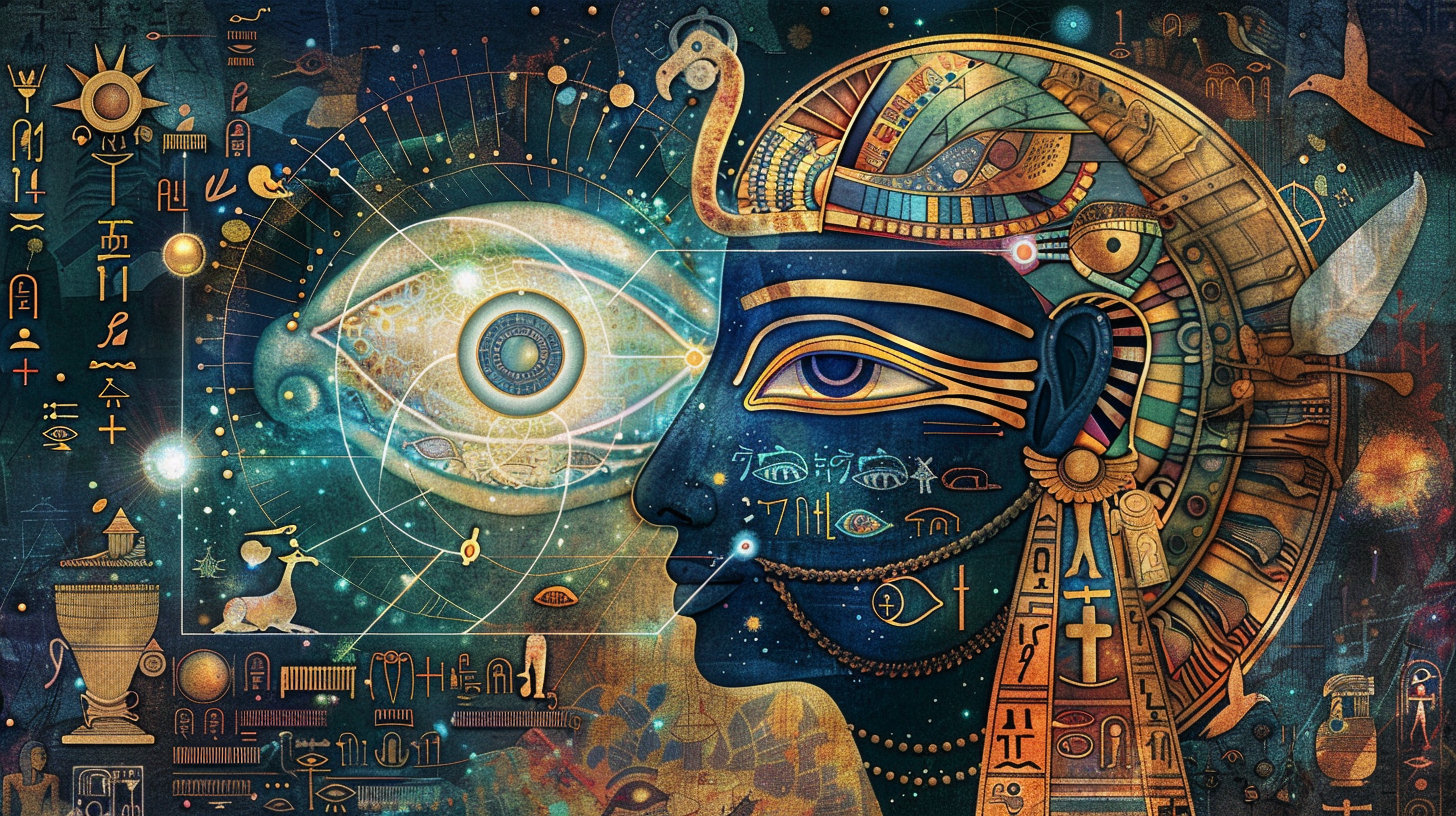
Ancient wisdom, a term both broad and deep, refers to the accumulated knowledge and insights of ancient civilizations, reaching back to the times when humanity first began to observe, record, and interpret the cosmos. As you journey through this exploration, you’ll discover how these profound insights from the past continue to shape our understanding of the universe today.
Egyptian Insights In ancient Egypt, wisdom was synonymous with the secrets of the stars. The Egyptians believed that the cosmos was an orderly and predictable expanse, governed by gods who influenced both the natural and celestial realms. The construction of the pyramids, aligned with the stars, stands as a testament to their cosmic wisdom. These monumental structures were not just tombs but also celestial maps, guiding the pharaohs to the afterlife, believed to be woven into the very fabric of the cosmos.
Mayan Cosmos The Mayans, on the other hand, integrated their celestial knowledge into their daily lives and governance systems. They developed sophisticated calendars based on their observations of the stars and planets, which governed their agricultural cycles and ceremonial events. This deep-rooted celestial knowledge underscored their belief in the cyclical nature of life and time, a concept that whispers its echoes in modern theories of time and the universe.
Indian Philosophical Contributions In India, the ancient texts known as the Vedas laid down complex ideas about the cosmos, which were both spiritual and scientific. The concept of an infinite universe, full of myriad worlds like our own, predates modern astronomical discoveries by millennia. These texts encourage you, the modern reader, to see the universe as a dynamic and interconnected web of energy, a view that resonates with certain interpretations of quantum physics today.
Chinese Cosmic Harmony The Chinese conception of the cosmos was deeply tied to the philosophy of balance and harmony, encapsulated in the yin and yang. This philosophy extended to their understanding of the stars’ influences on human affairs, leading to the development of Feng Shui, an art aimed at aligning the human-built environment with the energies of the cosmos to achieve harmony and prosperity.
Greco-Roman Legacy Finally, the Greco-Romans, with philosophers like Plato and later on, astronomers like Ptolemy, began to see the cosmos through a lens that mixed mythology with emerging scientific thought. Their quest to understand celestial patterns laid the groundwork for Western astronomy and continues to influence the field to this day.
As you delve deeper into these cultures, you begin to understand that ancient wisdom is not just about the stars and their courses; it’s about how these ancient peoples saw their place within the universe and how they used that understanding to shape their worlds. This tapestry of cosmic knowledge, rich with cultural nuance, continues to offer insights into our modern view of the universe, bridging millennia through the shared quest for understanding.
Philosophies of the Cosmos in Ancient Texts
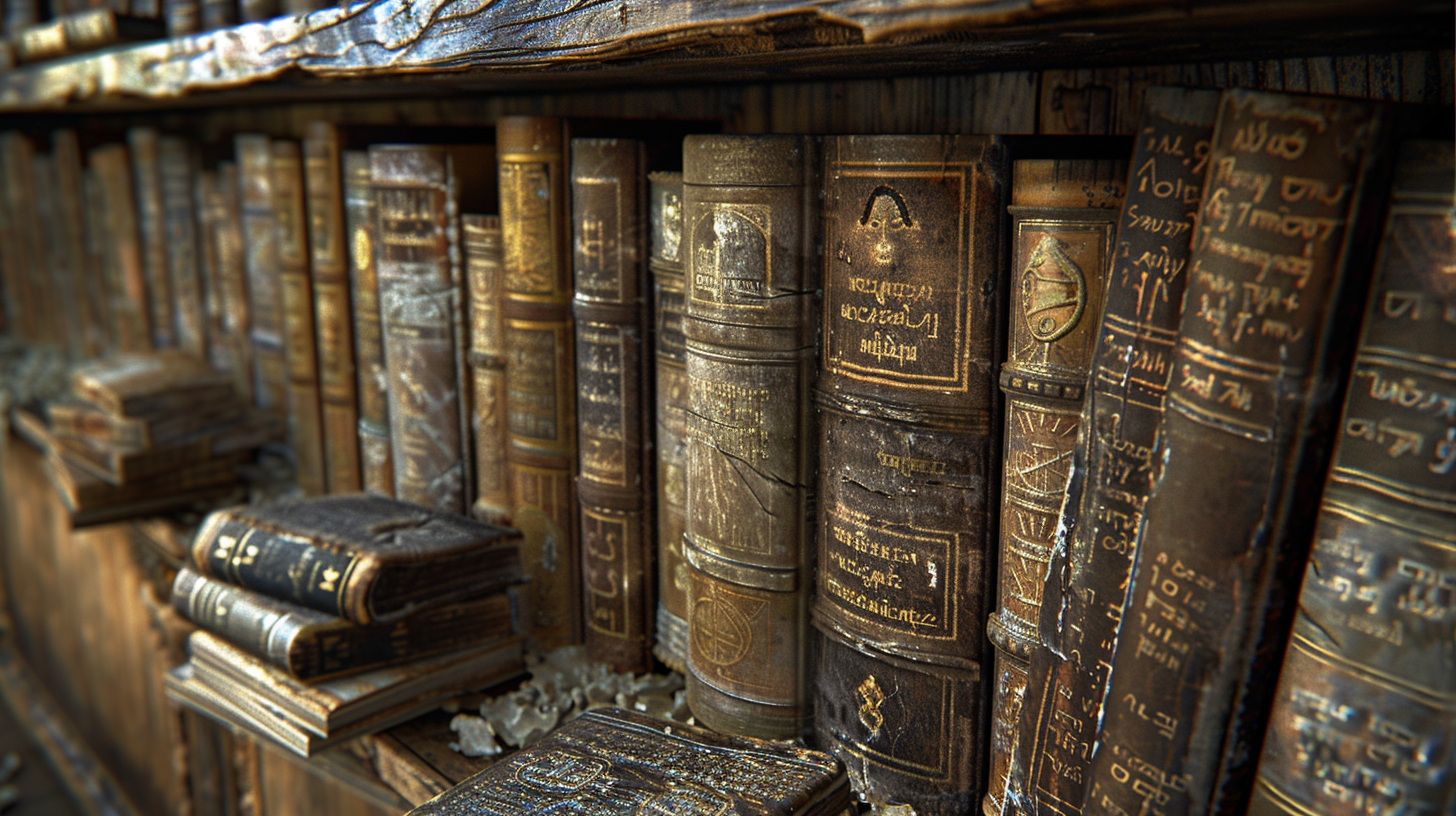
Dive deep into the rich tapestry of cosmic philosophy as presented in sacred texts from civilizations that shaped early human thought about the universe. As you explore, imagine these texts as ancient maps, guiding humanity’s understanding of the vast cosmos.
The Rig Veda – The Hymns of Creation Begin your journey with the Rig Veda, one of the oldest known texts in human history. This ancient Indian scripture is replete with poetic metaphors and philosophical insights that sketch the universe’s creation and structure. Consider the famous Nasadiya Sukta, the hymn of creation, which poetically questions the origin of the universe and the existence of a creator. “Was there a void? Who oversaw it? What was above and below?” These questions invite you, the reader, to ponder the mysteries of creation through a lens that predates modern scientific inquiry by millennia.
The I Ching – Dynamics of Balance Transition to the I Ching, an ancient Chinese classic that interprets the universe’s dynamic balance and the interplay of cosmic forces through the dualistic nature of Yin and Yang. This text offers a model of the universe not as static and unchanging but as a fluid, ever-evolving phenomenon where change is the only constant. Reflect on how the I Ching’s concept of change—embodied in the endlessly changing hexagrams—mirrors modern ideas about the unpredictable and dynamic universe.
Plato’s Timaeus – The World Soul Shift your focus to the West, where Plato’s Timaeus offers a philosophical treatise on the nature of the physical world, the cosmos, and the role of the Demiurge, the craftsman who orders the cosmos. Plato describes the universe as a living creature with a soul, made according to the principles of mathematical harmony. As you delve into this text, consider how Plato’s vision of a rational, ordered cosmos paved the way for the later scientific understanding that seeks to uncover the laws governing the physical world.
The Egyptian Book of the Dead – Journey of the Soul Finally, explore the Egyptian Book of the Dead, which provides insights into how the ancient Egyptians envisioned the afterlife and cosmic journey of the soul. This collection of spells, prayers, and incantations aimed to guide the deceased through the various challenges in the afterworld, depicting a cosmos rich with gods, celestial rivers, and fields of reeds. These descriptions reveal a cosmos intertwined with human morality and destiny, emphasizing a journey that continues beyond death.
Throughout this exploration, the vivid language and direct examples from these texts highlight how each culture’s view of the cosmos influenced their philosophy, spirituality, and scientific understanding. As you, the reader, traverse these ancient philosophies, consider how they make the mysteries of the cosmos both accessible and profound. Their insights into the nature of reality, though ancient, still resonate with and enrich our modern understanding, showing us that the quest to understand the cosmos is both timeless and universal.
The Role of the Cosmos in Ancient Life
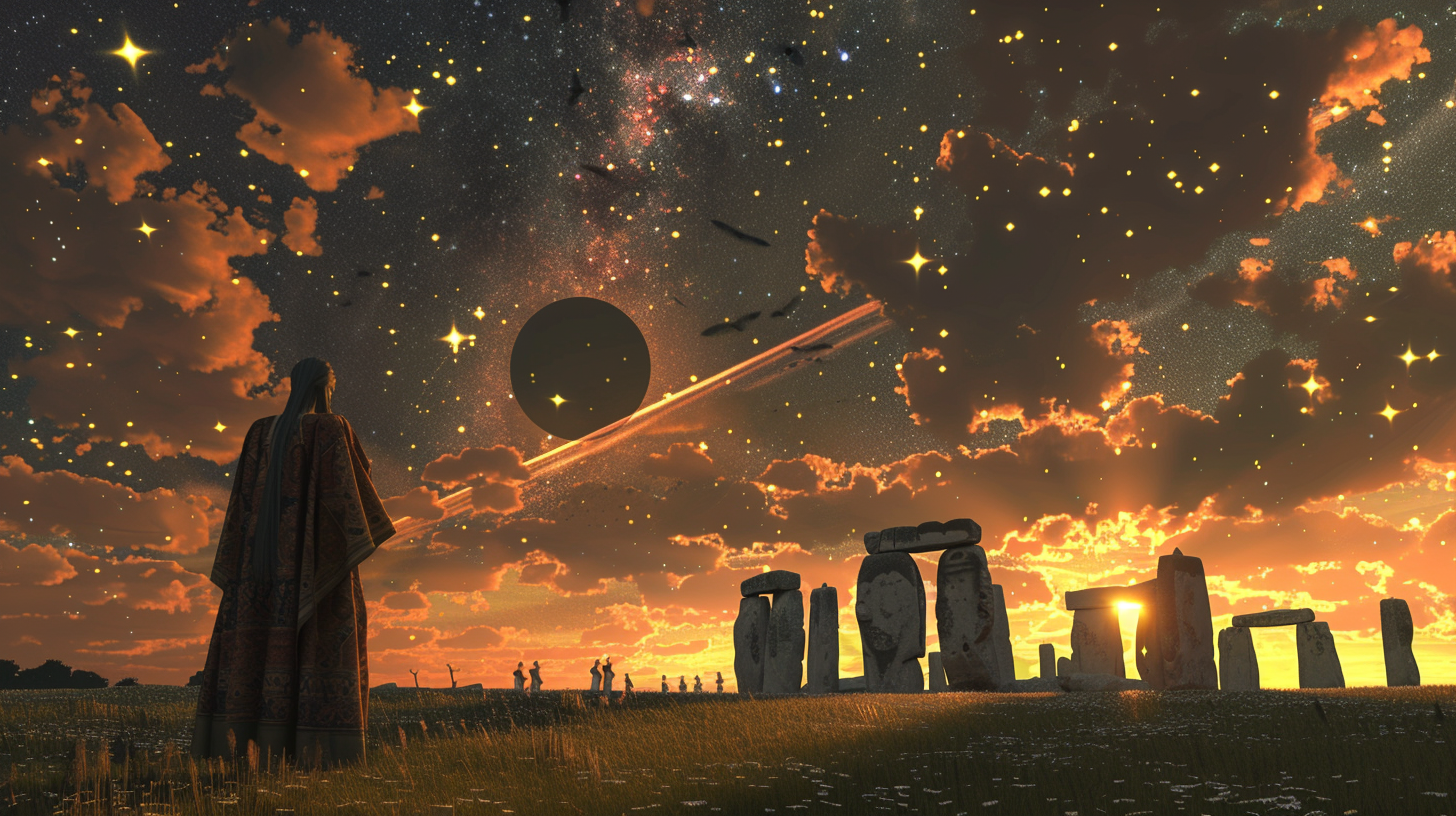
Throughout history, ancient civilizations have not only observed the cosmos but have intricately woven their celestial understanding into the very fabric of their daily lives and spiritual rituals. As you delve into this exploration, visualize how these ancient peoples looked to the stars not merely for guidance but as essential elements in shaping their world.
Astrological Practices Across Cultures Imagine the priest-astronomers of Babylon meticulously tracking the paths of planets and stars. Their observations were crucial for the timing of sowing and harvesting crops, for predicting river floods, and even for making royal decisions. Such astrological practices were widespread, from the Chinese divining future events through celestial phenomena to the Egyptian priests using the heliacal rising of Sirius to predict the Nile’s flooding. These practices reveal a cosmos that was not a distant, cold space but a dynamic, integral part of the ancients’ lives, influencing everything from the mundane to the monumental.
Architectural Alignments with the Heavens Step further back and gaze upon the monumental Stonehenge on the windy plains of ancient Britain. This prehistoric structure was more than a feat of primitive engineering; it was a giant calendar and observatory, aligning with the solstices and equinoxes, capturing the essence of the sun’s yearly journey across the sky. Similarly, the majestic pyramids of Egypt, aligned with incredible precision to the stars, served as eternal resting places for pharaohs, ensuring their passage into the afterlife was in accordance with celestial cycles. These structures were not only physical manifestations of power and devotion but also profound embodiments of the cosmos on Earth.
Calendrical Systems and Their Significance Now, consider the advanced calendrical systems of the Maya. Their calendar was not merely a method for marking time but a complex understanding of cosmic cycles, integrated into their culture and governance. The Mayan Long Count calendar, known for its precision, was deeply interwoven with their mythology and prophecy, predicting celestial events hundreds of years into the future. This precision underscores a harmony between human existence and cosmic order, a belief that celestial bodies’ movements were directly connected to earthly events and human fate.
As you reflect on these examples, you can see that these were not isolated practices but a comprehensive worldview where the cosmos played a critical role in shaping societal structures, religious beliefs, and even day-to-day activities. These ancient techniques reveal a deep integration of celestial knowledge into everyday life, showing how the stars and planets were constant, guiding presences.
Modern Interpretations and Legacy
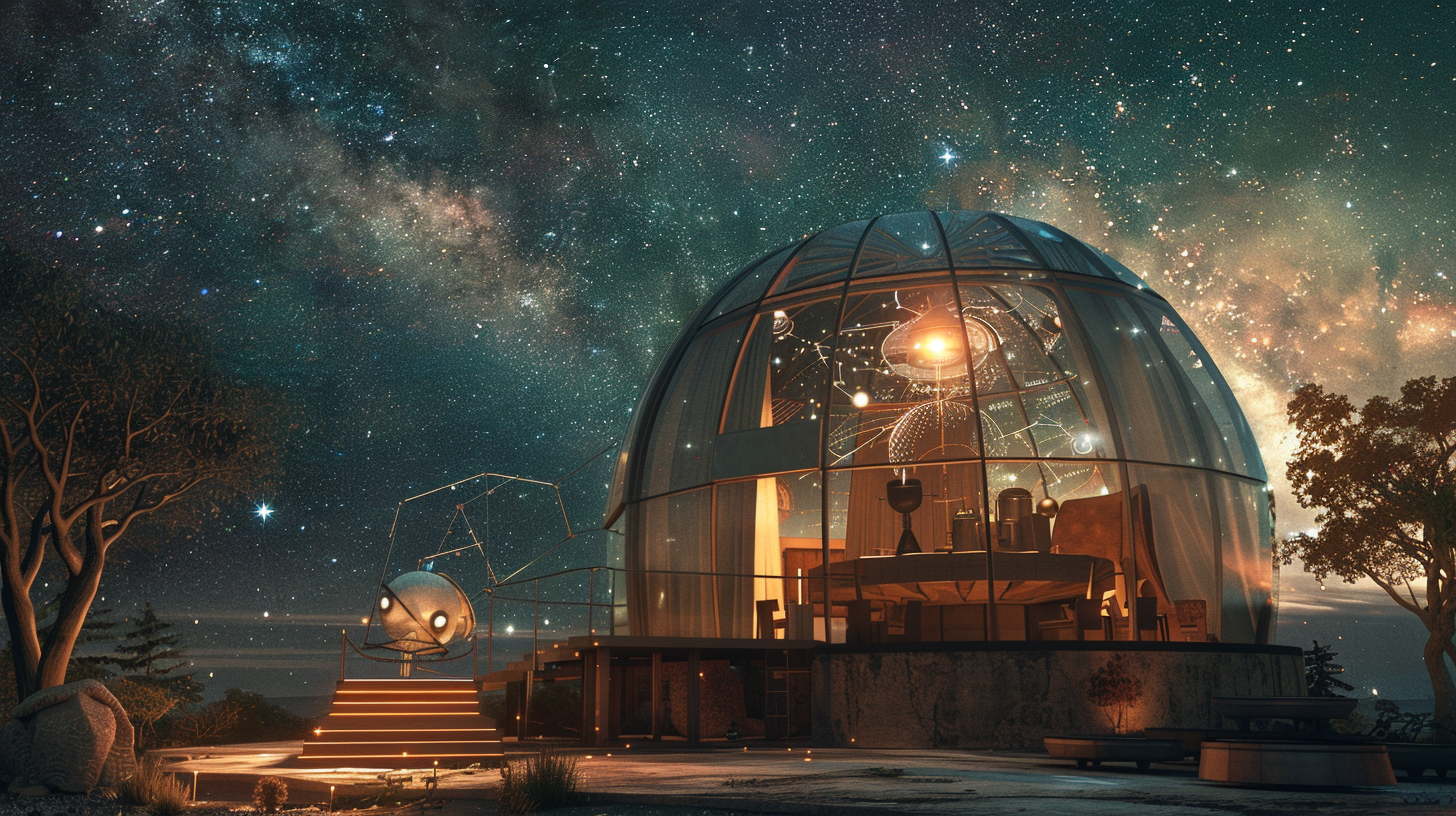
The cosmos has always been a canvas upon which humanity has projected its deepest inquiries and insights. Today, the influence of ancient cosmic views continues to shape modern scientific thought and spiritual practices, offering a profound testament to their enduring relevance.
The Astronomical Legacy Let’s start by looking skyward, as ancient astronomers did, to understand how contemporary astronomy has been shaped by their early observations. Consider the work of ancient Babylonians, whose meticulous record-keeping of celestial movements laid the groundwork for today’s astronomical predictions. Modern methods of tracking planetary orbits are sophisticated evolutions of these ancient practices. You might find it fascinating that tools such as the astrolabe, developed during the Islamic Golden Age, are echoed in the software used to navigate spacecraft across the cosmos today.
Physics and the Ancient Cosmos Venture next into the realm of modern physics, where the nature of time and space is a central concern—themes deeply rooted in ancient philosophy. The concept of an infinite, cyclic universe suggested by Indian cosmology mirrors certain interpretations in modern cosmology and string theory, where the universe undergoes an endless series of expansions and contractions. As you contemplate this, consider how these ancient concepts, once philosophical, now find echoes in the scientific language of black holes and quantum mechanics.
New Age Spirituality and Ancient Wisdom Turning inward to the spiritual landscape, new age spirituality has woven ancient wisdom into its core, creating practices that resonate deeply with today’s seekers. The holistic health movement, for instance, draws heavily on Ayurvedic principles, which view the universe and the human body as interlinked systems governed by a common set of cosmic laws. Similarly, the principles of Yin and Yang from Taoist philosophy have found new life in practices aimed at balancing personal and environmental energy in pursuit of wellness and harmony.
Applications in Modern Life Imagine using principles from Vedic astrology to make decisions about personal timing and relationships, or employing Feng Shui to harmonize your living space with natural energies. These applications are not just spiritual or esoteric but are practical adaptations of ancient insights into the cosmic order, tailored for contemporary life challenges.
As you explore these connections, you are invited to see yourself as part of a continuum that spans millennia. Ancient wisdom does not merely survive; it thrives, continually influencing and enriching our modern understanding of the universe and our place within it. This legacy is not static; it evolves as we apply ancient insights to contemporary challenges, both scientific and spiritual, thereby continuing the legacy of our ancestors in shaping our cosmic perspective.
Unlocking the Universe: The Sacred Seven Cosmic Powers Explained
Where to Find Ancient Wisdom Books
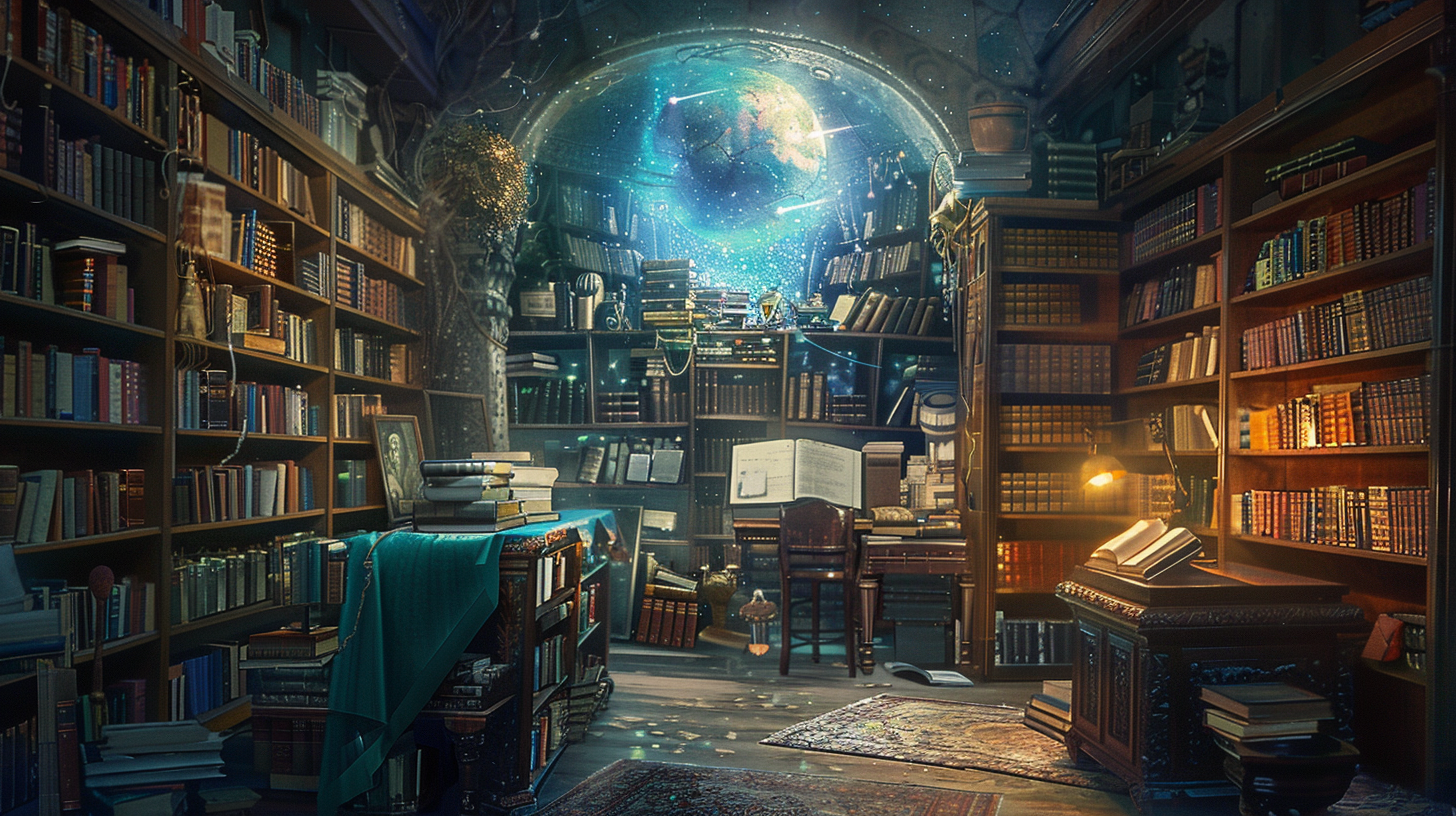
Boarding on the quest for ancient wisdom can be as thrilling as exploring the cosmos itself. As you seek to build your own collection of texts that unveil the mysteries of ancient cosmologies, knowing where to start is crucial. Let’s navigate together the vast world of spiritual and historical literature, ensuring you find authentic and enlightening books.
Reputable Sources for Ancient Wisdom Begin your journey by exploring well-known bookstores that specialize in historical and spiritual texts. Establishments like [Generic Bookstore Name] often carry a variety of works on ancient wisdom. For online shoppers, platforms like Amazon, AbeBooks, and Alibris offer extensive catalogs where such texts can be filtered and found. Additionally, specialized academic publishers such as Oxford University Press or the University of Chicago Press are renowned for their scholarly authenticity and high-quality publications.
Identifying Authentic Texts When choosing a text, the credibility of the publisher is paramount. Look for books published by reputable academic institutions or well-respected spiritual organizations. Reading reviews from trusted scholars in fields like archaeology, anthropology, or theological studies can provide further assurance of a text’s authenticity. Furthermore, recommendations from academic institutions or leading experts in the field often highlight the most respected works.
Digital Resources and Rare Finds For those hard-to-find or out-of-print books, digital resources can be invaluable. Academic databases such as JSTOR or Project Muse offer access to scanned versions of rare texts. EBooks are another great resource, with platforms like Google Books and Internet Archive providing free access to a plethora of documents that you can start reading right away.
Personalizing Your Search As you delve into this search, remember that the journey is personal. What resonates with one seeker may not resonate with another. Use your curiosity as a guide. When you find a source that intrigues you, dive deeper—check the table of contents, read excerpts, or even consult previews available online to ensure it aligns with what you’re seeking.
Conclusion: Reflecting on the Cosmic Journey
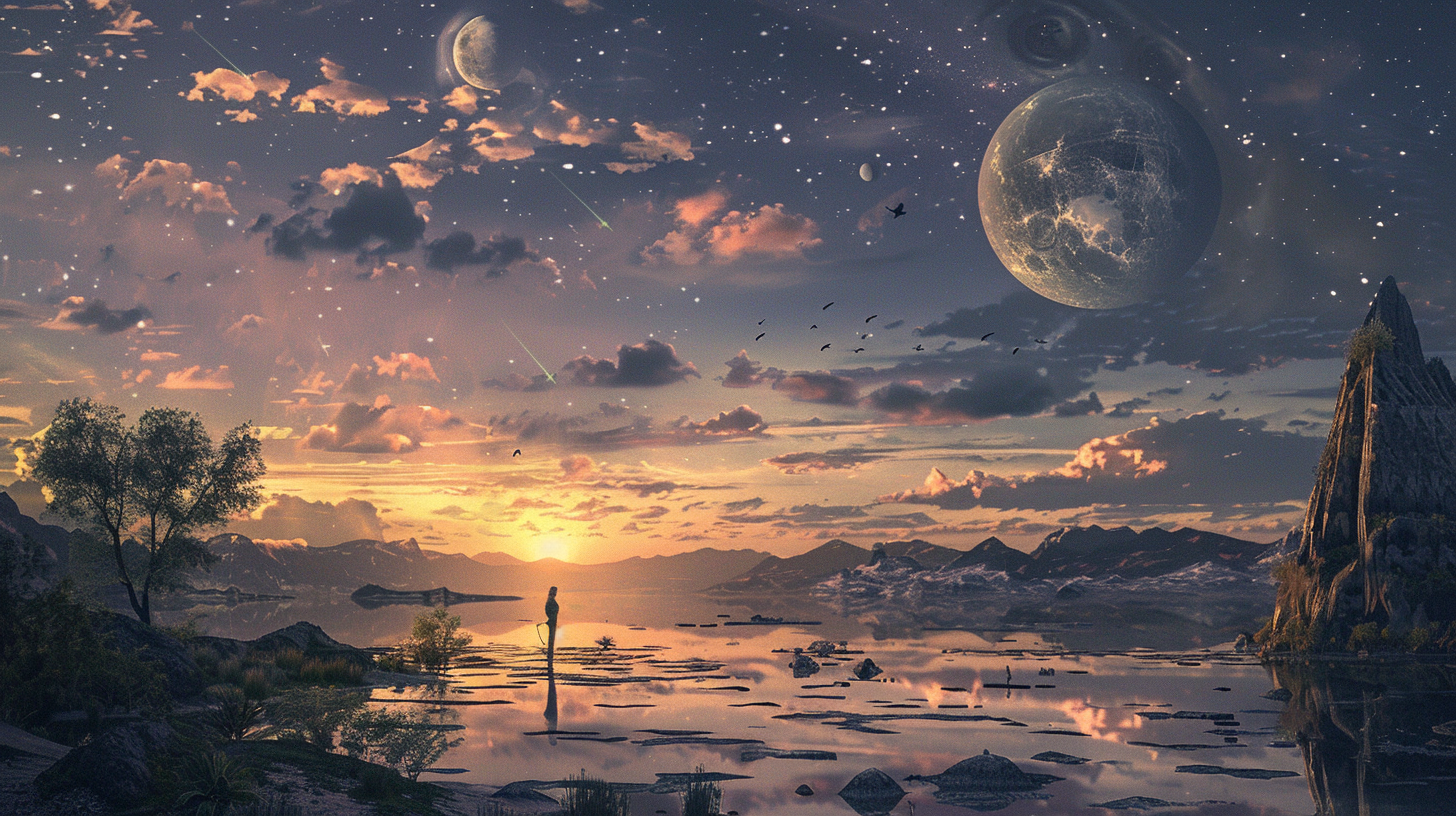
As we conclude our journey through “A Journey Through Ancient Wisdom: Unveiling the Cosmos in Sacred Texts,” let’s take a moment to reflect on the vast expanse we’ve traversed together. From the architectural alignments of ancient pyramids to the philosophical depths of Plato’s cosmos, each step has revealed how deeply the cosmos is woven into the fabric of human experience.
Throughout this article, we’ve explored how ancient civilizations, each in their unique way, understood the cosmos and their place within it. These ancient perspectives offer us timeless insights, highlighting a profound connection between the universe’s macrocosmic structures and our microcosmic existences. This wisdom, drawn from the stars and planets, continues to influence modern scientific thought and spiritual practices, bridging the gap between the ancient and the contemporary.
The intricate cosmologies developed by cultures from the Mayans to the Egyptians have not only informed modern astronomy but have also enriched the spiritual landscape of our times. New age spirituality, modern architectural principles, and even cutting-edge physics often echo these ancient ideas, showing that these philosophies still resonate within our modern world, providing deeper insights into the nature of the universe and our individual and collective roles within it.
I encourage you, the reader, to continue exploring these ancient perspectives. The wisdom of our ancestors is not confined to history books but is alive, pulsating through the fabric of our daily lives. As you look up at the stars tonight, consider how the ancient understanding of the cosmos might change your perspective on the universe and your role within it. What new paths of inquiry does this open for you?
By engaging personally with these ancient insights, you forge a connection that transcends time—a dialogue with the past that informs and enriches your present and future. Let this exploration be not just an intellectual exercise but a transformative experience, inspiring you to integrate these cosmic views into your own life, continuing the legacy of curiosity and reverence that has moved humanity since time immemorial.







